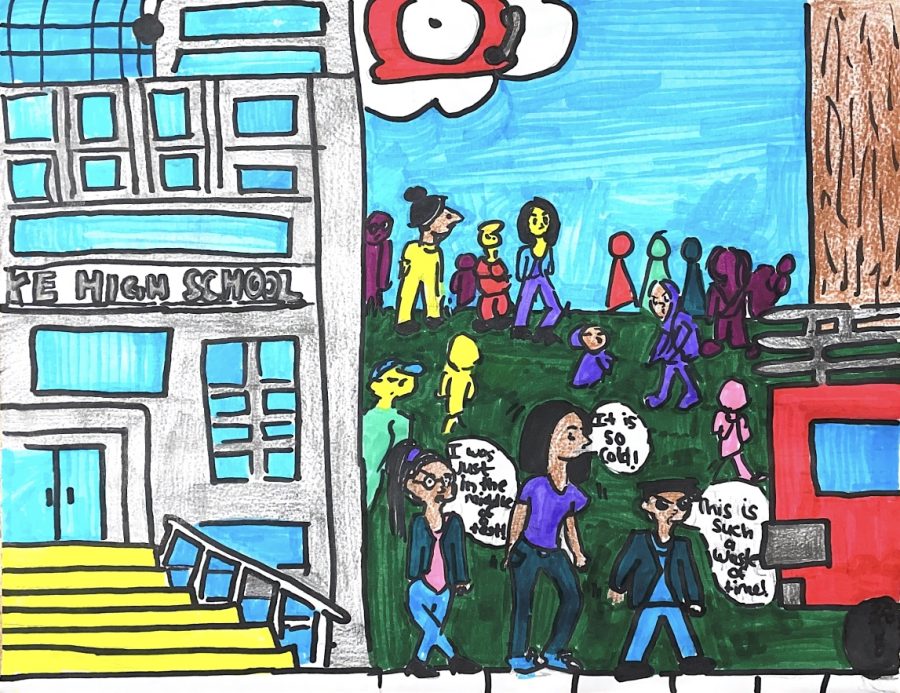Fire drill fiasco becomes ‘boy who cried wolf’ situation
Throughout the early days of October, the fire alarm has been a constant blaring sound echoing in the halls. At first, panic sets in as kids race out the door, grabbing all their belongings in the process. But the normal rushed routine began to feel monotonous after five drills in one week. Kids began to walk out of the building at a leisurely speed and leave their backpacks in the classrooms after realizing it was not a confirmed drill. Many teachers and students expressed their frustration with the false alarms, for it was time being taken away from learning in the classroom.
A majority of the fire drills occurred during my Advanced Placement courses. Because these classes are filled with rigorous content, I enjoyed a nice 15-minute break outside that helped split up the class. But after this became an ongoing thing, the work began to pile up on us. We missed so much class time because of the fire drills which forced us to make up the incomplete work on our own time.
I can understand the frustration from the teachers for losing valuable class time, because it disrupts their lesson plans for the day. When one class misses a total of 45 minutes from instruction due to the fire drills, it must be difficult to keep them on schedule and caught with their other classes.
Not only are the fire alarms hurting our education, but they are affecting our safety. Sending a fire truck to a school five times in one week for five false alarms does not help our case if a real fire were to start. Is our school turning into “The Boy Who Cried Wolf?” Would the fire department still rush to get to Burke if they got an alert? Our safety is being compromised, for we now hold no trust within the eyes of the fire department, resulting in a slower evacuation in a real emergency.
The main way we can prevent these fire drills from alarming the student body is by stopping the root of the problem. These fire drills are occurring mainly because many students are vaping in the bathrooms, causing the detectors to sound when too much smoke fills the stalls. According to TruthInitiative.org,f 13.1% of sophomores are vape users. This number significantly increases to 19.6% as kids enter their senior year. By preventing vaping at Burke, student’s lungs would be healthier, kids would be more engaged in their classes, and the fire alarms would remain quiet. Seems like a win-win situation for everyone involved.





